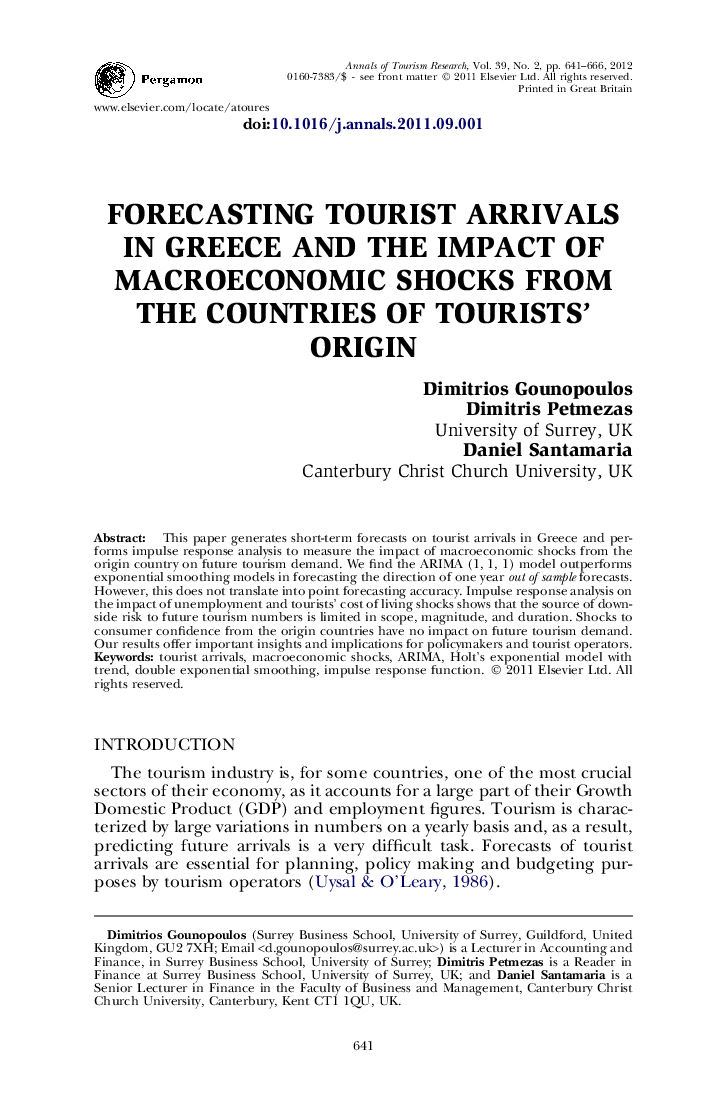| Article ID | Journal | Published Year | Pages | File Type |
|---|---|---|---|---|
| 1007410 | Annals of Tourism Research | 2012 | 26 Pages |
This paper generates short-term forecasts on tourist arrivals in Greece and performs impulse response analysis to measure the impact of macroeconomic shocks from the origin country on future tourism demand. We find the ARIMA (1, 1, 1) model outperforms exponential smoothing models in forecasting the direction of one year out of sample forecasts. However, this does not translate into point forecasting accuracy. Impulse response analysis on the impact of unemployment and tourists’ cost of living shocks shows that the source of downside risk to future tourism numbers is limited in scope, magnitude, and duration. Shocks to consumer confidence from the origin countries have no impact on future tourism demand. Our results offer important insights and implications for policymakers and tourist operators.
► The source of demand is undiversified and subject to potential risk from shocks. ► The ARIMA model outperforms other models as a directional forecasting tool. ► Holt’s exponential smoothing model with trend is the best performing model. ► Downside risk to future tourism demand is limited resulting macroeconomic shocks. ► Shocks from consumer confidence in the origin country have no impact on future tourism demand.
